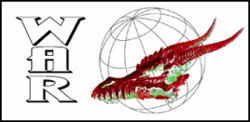The Heated Peace
| Name(s): | The Heated Peace |
| Start of hostilities: | 1966 |
| End of hostilities: | 1988 |
| Winning side: | Losing side: |
 Tejas |  Mejico |
| Major Consequences: | Led to the rise Jorge Bush and the Collapse of the Rio grande Wall |
The Heated Peace (1966 – 1988) stood as the rising political and military pressure between the regional hegemon of the República Mejicana and Reyno de Tejas. Climbing out of a history of political disputes and border skirmishes, any peace time compromise amongst the two powers remained hindered and later found unsuccessful. Relationships mutually sunk into a pandemonium with Mejican reluctance to compromise its regional hegemony, consequentially met by Tejan military build-up, later followed by Mejican trade embargos.
At the outset both countries climbed from a gloomy history of conflicting traditional rivalry. Certainly bordering with one another further stressed such increasingly sore relations, with consequent Tejan arms build-ups was soon met with the Mejican policy of economic containment. What began as relaxed historical enmity latter escalated into a chain of political struggles in to 50’s to an economic and military competition in the 60’s.
Although neither party’s demonstrated direct military confrontation which would have indisputably exhaust them militarily, likewise economic penalties of financing such a war also prompted to endorse this strategy. Both sides employed an initial pursuit of substantial propaganda campaigns, trade embargos, instigated proxy wars, espionage and later followed by cycles of strategic military build-ups and deployments.
The Cold war supervised the rise of Jorge Bush the soon to be the benevolent dictator of Tejas, thus ensuing the demise of The Heated Peace with the ratification of The Santa Fe peace treaty. Similarly it also supported the partial collapse of the Rio Grande wall, and many other prominent Cold war accomplishments. In spite of this it is argued that it indirectly induced the rise of the recent 2003 War with Tejas.
